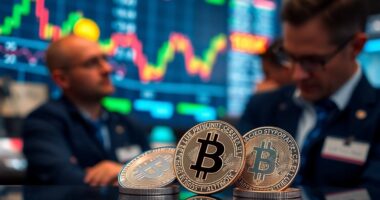You might have heard about Errol Musk's latest venture, "Musk It," which aims to tap into the meme coin craze to raise between $150 million and $200 million. With a market cap already hitting $27 million, it's drawing both curiosity and skepticism. But what does this mean for investors in such a volatile market? The implications could be significant, and the story behind this initiative raises even more questions about the future of cryptocurrency.

As Errol Musk embarks on his quest to launch the meme coin "Musk It," he aims to tap into the speculative excitement surrounding cryptocurrency, even if his son, Elon Musk, isn't backing the project. This ambitious initiative seeks to raise between $150 million and $200 million, a hefty goal that reflects the growing appeal of meme coins in today's market. Launched by a Middle Eastern crypto company in December, "Musk It" gained traction after Errol Musk endorsed it, capturing attention and curiosity among potential investors.
You might wonder what makes "Musk It" different from the myriad of other meme coins out there. While it's true that the coin's market capitalization has already surged to around $27 million, the project's underlying purpose is what sets it apart. The funds raised will support the Musk Institute, a for-profit think tank dedicated to advancing scientific innovation. Projects like flying vehicles are on the agenda, promising potential breakthroughs in engineering and technology. Skepticism arises due to a lack of detailed tokenomics and transparency, which could deter more cautious investors.
Although Errol claims the project operates independently of his son, there's no denying that Elon Musk's name carries weight, possibly influencing market perception.
However, the road ahead isn't without its challenges. Meme coins are notorious for their volatility and speculative nature, which raises eyebrows among investors. While Errol's endorsement boosted "Musk It," concerns about its stability linger in the background. Investors might associate the coin with Elon, but this association can create an unpredictable dynamic. The lack of transparency regarding the token's structure and tokenomics further fuels skepticism, leading some to question the project's integrity.
There's also the issue of regulatory scrutiny. As celebrity-driven meme coins like "Musk It" gain traction, calls for increased oversight become louder. Political implications and ethical challenges arise, especially when high-profile figures are involved. Public perception can swing from interest to skepticism in a heartbeat, making it a double-edged sword for projects like this.
As you consider the potential risks and rewards, remember that the crypto landscape is fraught with pitfalls, including scams and "pump-and-dump" schemes. The success or failure of "Musk It" could significantly influence broader perceptions of meme coins, ultimately shaping the future of this niche market.









